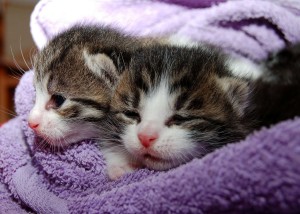Our pet neutering service is temporarily suspended but will be reinstated as soon as is possible
 Following the closure of our mobile neutering after 19 years and 19,000 cats neutered, we are currently reviewing our subsidised cat neutering scheme for 2021 and onwards. Our branch spends at least £10,000 a year on neutering cats, and we intend to continue this vital work, but first we need to find an alternative plan that delivers this service in the most cost effective manner possible. We are working on this at the moment. In the meantime, please contact the PDSA, Cats Protection and any one of the other cat charities in Thanet for assistance.
Following the closure of our mobile neutering after 19 years and 19,000 cats neutered, we are currently reviewing our subsidised cat neutering scheme for 2021 and onwards. Our branch spends at least £10,000 a year on neutering cats, and we intend to continue this vital work, but first we need to find an alternative plan that delivers this service in the most cost effective manner possible. We are working on this at the moment. In the meantime, please contact the PDSA, Cats Protection and any one of the other cat charities in Thanet for assistance.
We can also help with the neutering costs of dogs, rabbits and most other types of domestic pets.
The above services are offered to those with either no or low incomes, and we may ask for proof of benefits/income.
Call us or e-mail us for dates, availability, bookings and any other information on any of the above.
Remember……
Animal centres, council pounds and vet clinics are full of unwanted, abandoned and stray animals. Most of these animals are a product of unplanned and unwanted pregnancies that were easily avoided.
Here are a few facts that make it make sense to neuter your pets:
If you don’t neuter your cat …
Unneutered tom-cats are more likely to wander and become stray as they attend to their ‘urges’, and they are also more likely to get in to fights with other male cats over territory and competition to mate with females. It could cost you … A single cat bite can spread life threatening viruses and also leave nasty abscesses that are painful for the cat and costly for the owner to treat at the vets. Unneutered males will also spray their territory with smelly urine; neutering will prevent them from doing this and greatly reduce the odour.

An unneutered female is a magnet to entire males and will often be harassed and ‘assaulted’ by multiple males. The male cat will usually bite the female during mating, a sure way to spread viruses. Some female cats will be sexually mature and able to conceive from 4 months, and could have three litters in a year! Finding good homes for kittens can be difficult, especially if you want to find people that will meet all the needs of the kittens as they grow and become adults.
If you don’t neuter your dog …
Unneutered male dogs are more likely to be involved in aggressive challenges and fights with other dogs, are more likely to cock their legs at inappropriate times, are more likely to stray away from home in search of in-season female dogs and are more likely to display undesirable sexual behaviours such as ‘humping’ furniture, toys and the legs of people! Neutering (castrating) your dog will prevent testicular cancer and some prostate problems.
Unneutered female dogs will go into heat/season. While cycles can vary, bitches usually go into heat/season every six to seven months. This can be messy in the home and can cause undesirable and alarming behavioural changes. They will also attract the unwanted attention of male dogs whilst out walking. Neutering (spaying) your female dog will stop this happening and also prevent a life threatening condition called pyometra (an infection of the uterus) and also greatly reduce the chance of mammary gland cancer.
If you don’t neuter your rabbits …
Unneutered rabbits will end up lonely and unhappy. Rabbits are social creatures, and almost without exception the very best way to keep a rabbit is with another rabbit (the idea of keeping a rabbit and a guinea pig together is old fashioned and not the right thing to do, especially for the guinea pig). It is very difficult to successfully ‘bond’ unneutered pet rabbits due to aggressive behaviours as a result of hormone levels. All reputable animal charities, and anyone else that knows their bunnies, will insist on paired rabbits being neutered.
Unneutered male rabbits are more likely to spray urine, and both male and females are more likely to exhibit destructive (chewing, digging) and aggressive (biting, lunging, circling, growling) behaviours.
An unneutered female rabbit at five years old and above has an 80% chance of developing uterine cancer.

Help Our Animals £ DONATE
RSPCA THANET: 01843 826180